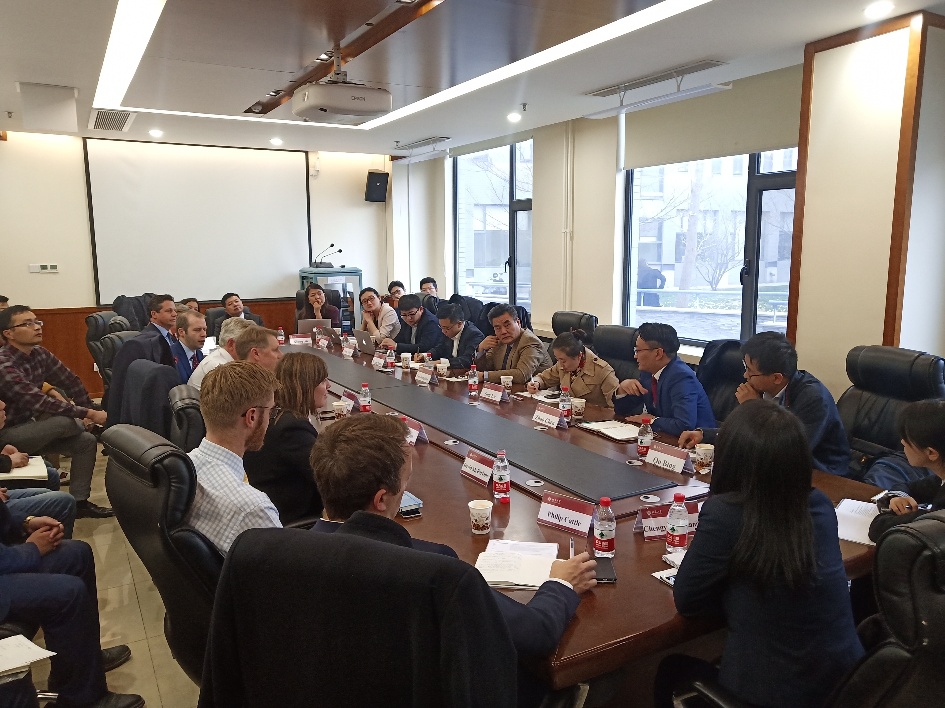
On the afternoon of November 8th, 2018, the delegation of the UK Parliament's All Party Parliamentary China Group (APPCG), led by President Richard Graham, visited the School of International Studies of Peking University and held a symposium with teachers, students, academics and media professionals on the topic "What Will the UK and China Look Like in 20 Years?" concerning China-UK relations, Brexit and international trade. One of the special activities of the Kim Koo Forum, this symposium was hosted by the Institute for Global Cooperation and Understanding (iGCU, formerly Institute for China-US People-to-People Exchange) of Peking University and chaired by Professor Wang Dong, Executive Director of the Institute.
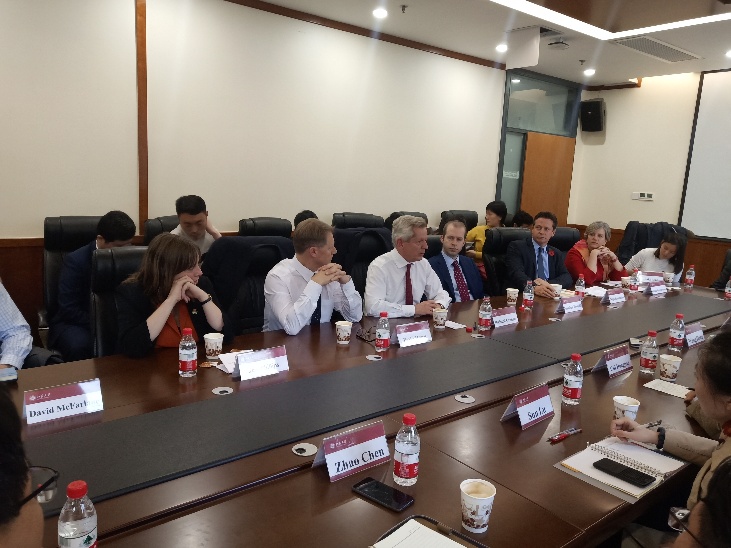
The participants from the British side were as follows: Richard Graham MP, Chairman of APPCG, Prime Minister's Trade Envoy and Chairman of the Great Britain China Centre; Lilian Greenwood MP, Member of APPCG and Chair of the Transport Committee of the UK Parliament; Jonathan Reynolds MP, Member of APPCG and Shadow Economic Secretary to the Treasury; Jess Phillips MP, Member of APPCG and former Chair of the Anti-domestic Violence Committee and Women and Equalities Committee; Nigel Huddleston MP, Member of APPCG and Parliamentary Under-Secretary of State for Sport, Tourism and Heritage at the Department for Digital, Culture, Media and Sport; David Morris MP, Member of APPCG and Parliamentary Under-Secretary of State for Education; David McFarlane, Minister-Counselor of the British Embassy in Beijing; Philip Cattle, Political Secretary of the British Embassy in Beijing; Saki Reid, APPCG Coordinator at the British Embassy in Beijing; and Chengyuan Zhang, Attaché of the British Embassy in Beijing. The participants from the Chinese side were as follows: Counselor Yang Ruiguang from the Chinese Embassy in London; Cui Hongjian, Director of the Department for European Studies of the China Institute of International Studies and former diplomat; Researcher Zhao Chen from the Institute of European Studies of the Chinese Academy of Social Science; Professor Wang Dong from the School of International Studies of Peking University; Associate Professor Liang Yabin from the Institute of International Strategies of the Party School, Central Committee of the CPC; Associate Researcher Qu Bing from the Institute of European Studies of the China Institutes of Contemporary International Relations; Associate Professor Xiong Jie from the Institute of International Strategies of the Party School, Central Committee of the CPC; Assistant Professor Hu Dan from Beijing Foreign Studies University; and post-doctoral researcher Sun Lu from the National Institute of International Strategy of the Chinese Academy of Social Sciences. Nearly 30 students and media professionals also attended the symposium.
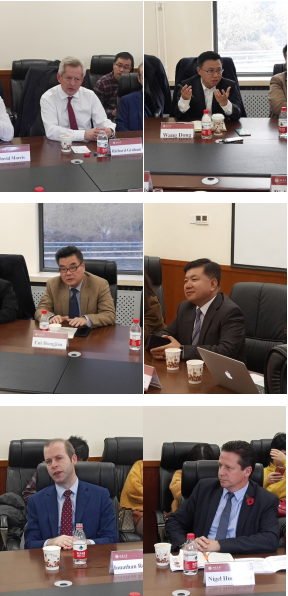
At the beginning, on behalf of the Chinese side, Professor Wang Dong welcomed the delegation of APPCG and gave a brief introduction to the Institute for Global Cooperation and Understanding (iGCU, formerly knowns as Institute for China-US People-to-People Exchange) of Peking University. Richard Graham MP introduced the achievements of APPCG in recent years and the basic topics of this symposium and exchanged views with Researcher Cui Hongjian on Brexit and its impacts on the UK and China. Cui Hongjian pointed out that the UK and EU are both critical partners of China in economics, security and global governance, and China has been highly concerned about the UK-EU negotiations, but the current situation does not seem to be win-win. Richard Graham MP replied that behind Brexit lies rising global nationalism and protectionism, which is detrimental to trading between nations. However, Brexit is an excellent opportunity for the UK to become a "global Britain" with further enhanced openness, which will also be in the interests of China. Besides, the UK will become more involved in the affairs of other parts of the world, especially Asia, Africa and the Middle East. Jonathan Reynolds MP briefly discussed some core demands of the UK in the Brexit negotiations. Researcher Zhao Chen said that rising protectionism and nationalism had impacted the so-called liberal international order, and significant changes have taken place in the evolution of technology, so global governance is becoming more difficult while also being more critical than ever before. Both China and the UK should strengthen their cooperation in relevant areas to face these challenges jointly. Assistant Professor Hu Dan expressed interest in lowering the threshold for foreign investment in the UK and exchanged views with several MPs on relevant issues. Minister-Counselor David McFarlane explained the adjustments and motivations of policies for foreign investment in the UK and some existing barriers to FDI in the UK. Jess Phillips MP and Nigel Huddleston MP explained that the UK is no longer one of the world's biggest countries in terms of population and economic aggregate, but it remains confident in its global soft power, technology and information, so there is large space for mutual learning between China and the UK. If China and the UK can further strengthen their social and people-to-people exchange, the UK-China bilateral relationship will be more optimistic in the next two decades.
During the second half of the symposium, Richard Graham MP expressed concerns about China's rising global influence and the recent fluctuation in China-US relations. Professor Wang Dong stressed that the international community should listen to both the US and China on the strategic competition and recent friction between China and the US. China is trying to adapt and learn to be a truly influential global power, and this cannot happen overnight. In the Q&A session, Associate Professor Liang Yabin and Associate Researcher Xiong Jie held discussions with British MPs on the WTO reform and challenges for the global free trade mechanism. Associate Researcher Qu Bing expressed concern about how much British policymakers know about China. Post-doctoral researcher Sun Lu wondered about the attitudes of the Conservative and Labour Parties towards the Belt and Road. The MPs responded frankly and in detail. Finally, Professor Wang Dong invited Researcher Cui Hongjian to give a summary, then welcomed the British MPs to visit the School of International Studies of Peking University again. The meeting ended warmly and friendly.
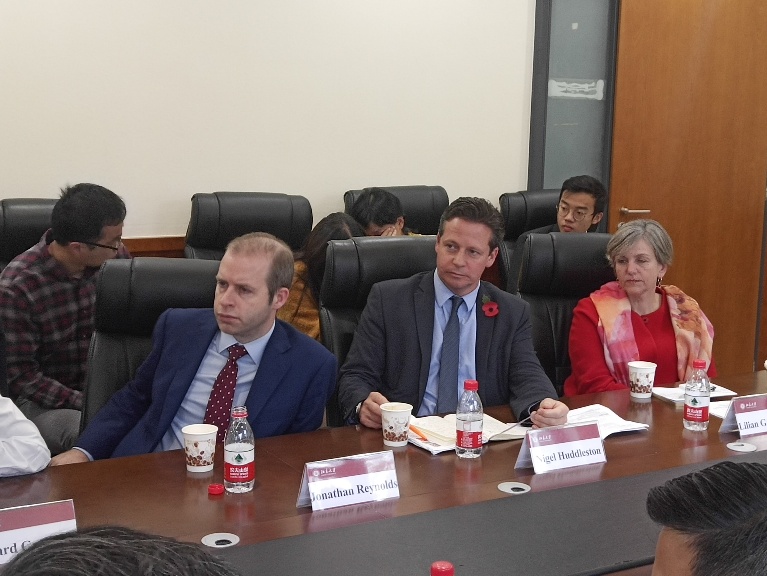
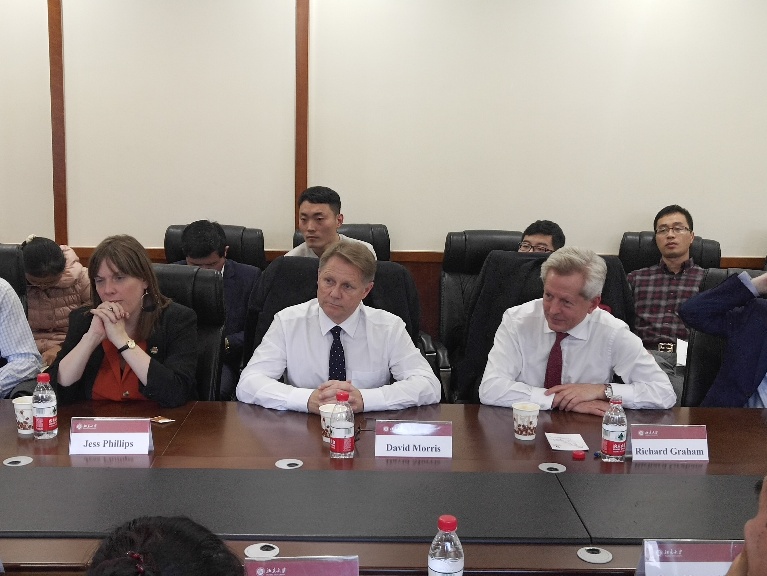
The All Party Parliamentary China Group (APPCG) was established in 1997 to facilitate the UK Parliament's contributions to the UK-China bilateral relationship. Its mission is to help MPs better understand China and serve as a platform for communication on essential issues in the UK-China bilateral relationship. APPCG is particularly concerned about its relations with the National People's Congress of China, and it has a counterpart organization in China. In 2006, both sides signed a memorandum of understanding on cooperation and agreed to conduct regular visits and exchanges. Chaired by Conservative MP Richard Graham, APPCG has a strong influence on the UK Parliament's attitude towards and policy formulation for China.
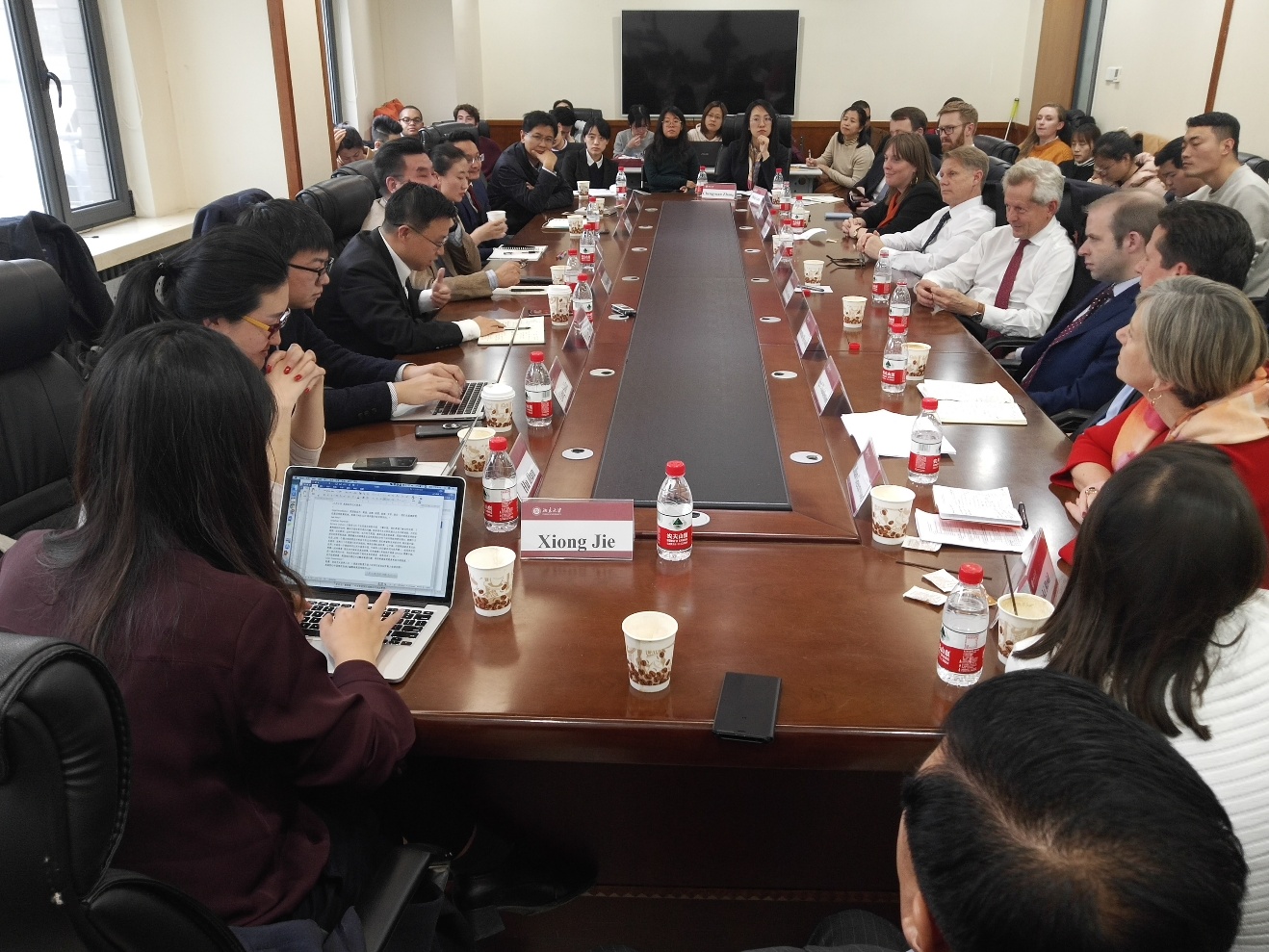
Institute for Global Cooperation and Understanding (iGCU, formerly Institute for China-US People-to-People Exchange) of Peking University is a new-type think tank with Chinese characteristics approved by the Ministry of Education (MOE) of China and operated by Peking University. Integrating teaching, scientific research, policy consultation and talent training as a whole, iGCU is the only comprehensive think tank for people-to-people exchanges in Peking University established by the MOE at present, serving the “Ten Mechanisms” of people-to-people exchanges, leading domestic researches on people-to-people exchanges, coordinating and promoting the cause of China’s people-to-people exchanges with other nations in the world. In January 2020, upon approval of the MOE, the “Institute for China-US People-to-People Exchange” was renamed as the “Institute for Global Cooperation and Understanding”. In December 2020, the iGCU was enlisted into the 2020 Chinese Think Tank Index (CTTI), and in January 2021, it ranked 76th among Top Think Tanks in China, India, Japan, and the Republic of Korea 2020, also the 17th Chinese think tank on the list.
